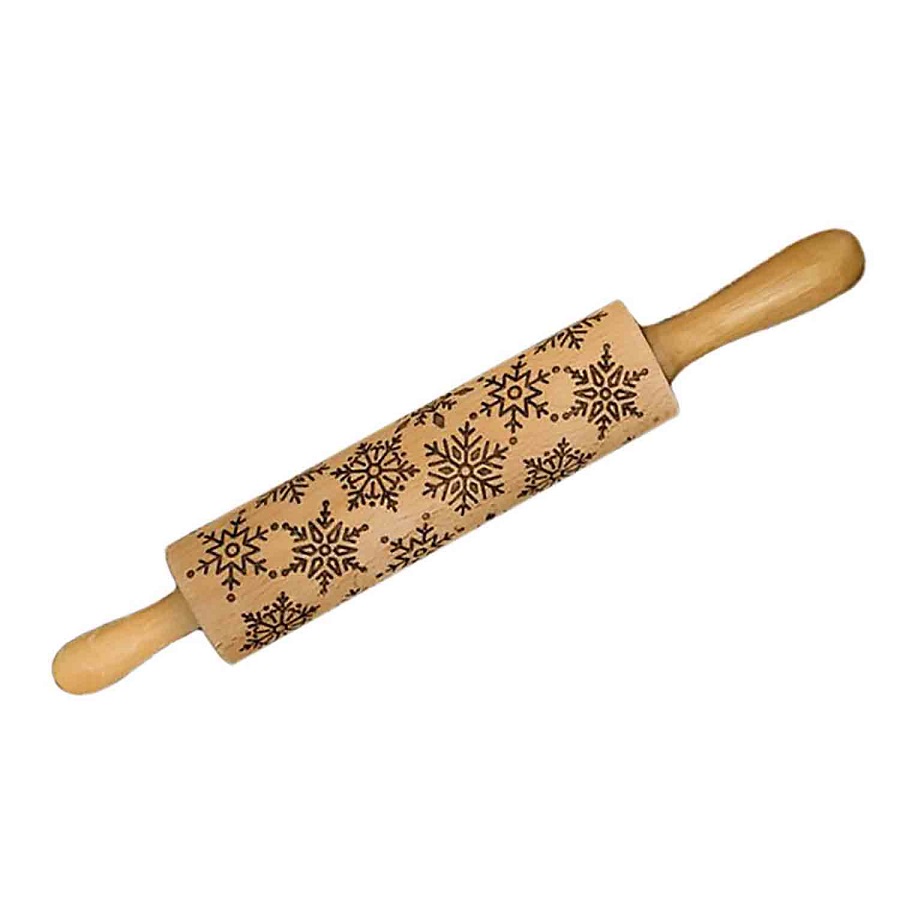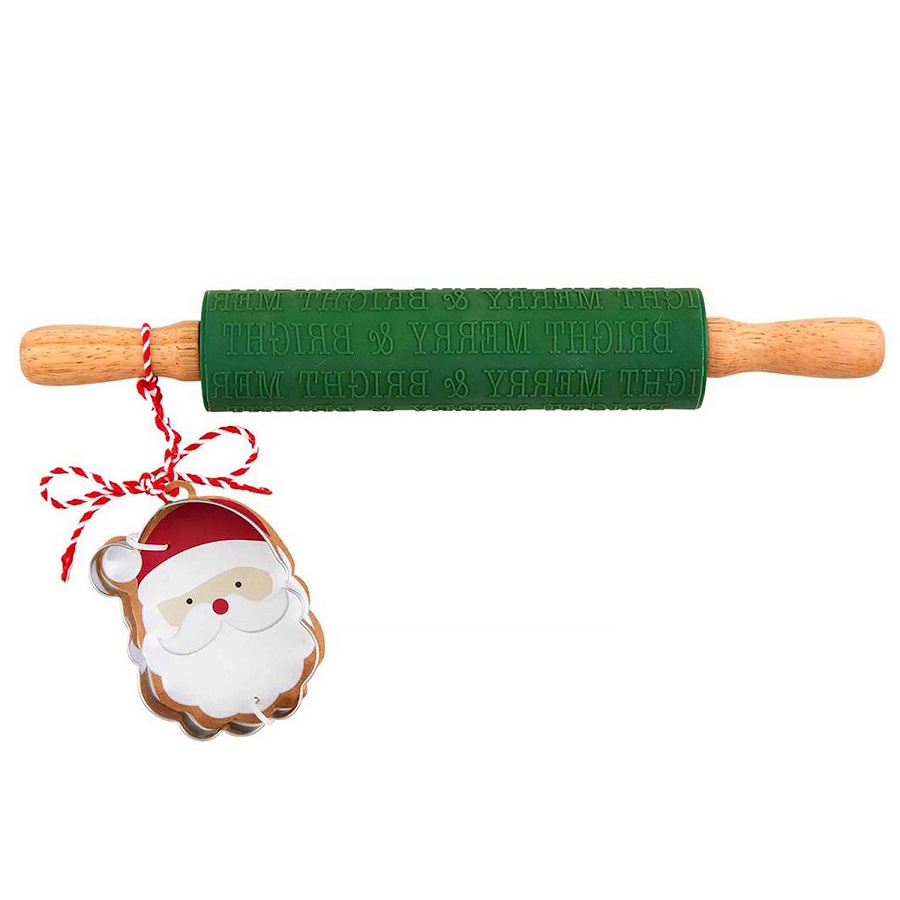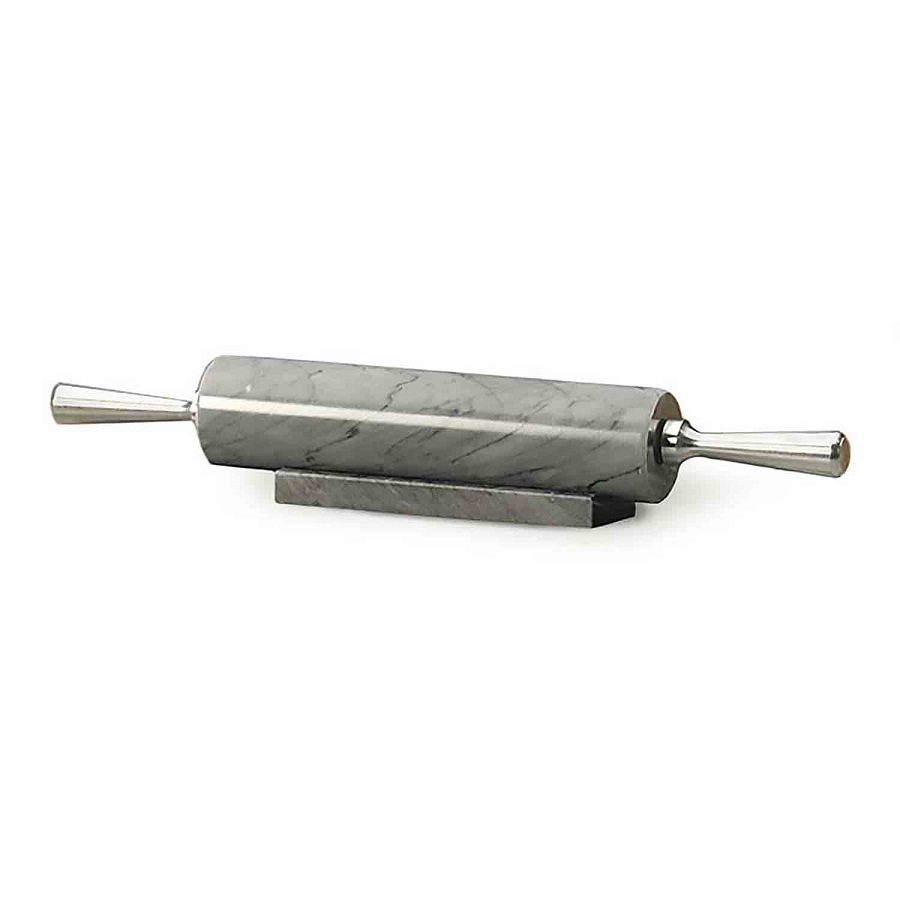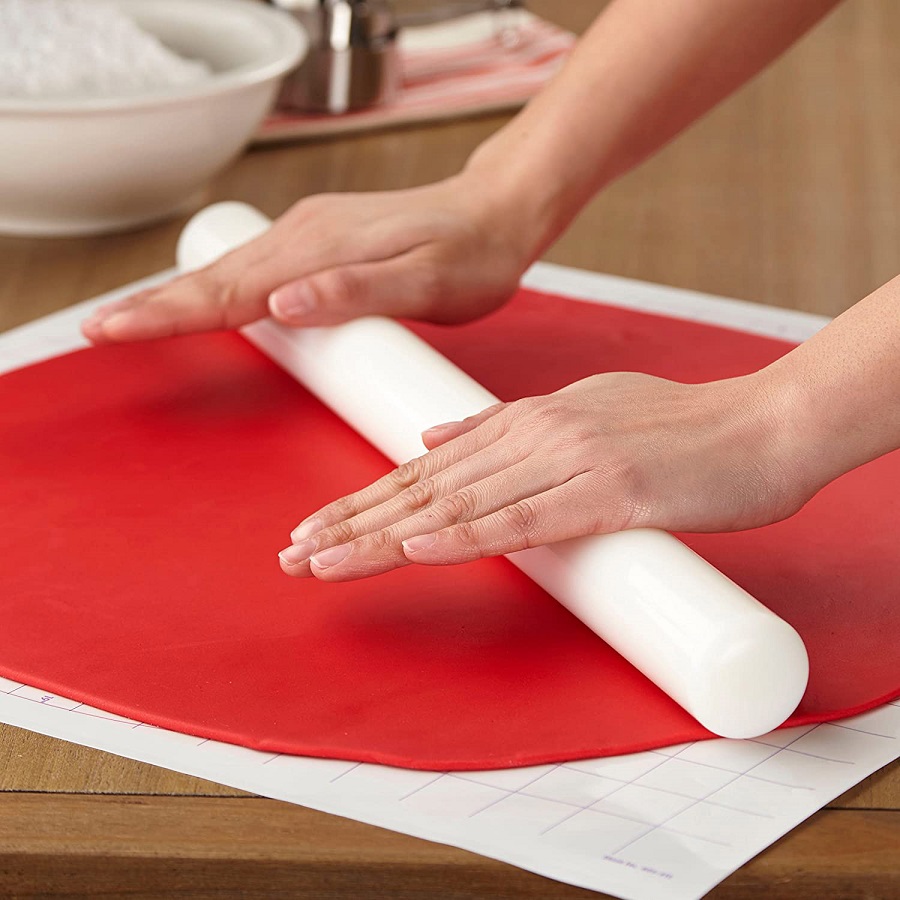Introduction
Rolling pin alternative – Mastering the art of pastry dough preparation is a cornerstone for any baker or chef looking to create delectable pies, tarts, and pastries. The traditional method often involves the use of a rolling pin to flatten and shape the dough into an even thickness. However, not everyone has access to a rolling pin, or perhaps you’re looking for alternative methods to add versatility to your baking routine. Fear not, for there are several innovative techniques and substitute tools that can help you achieve perfectly rolled pastry dough sans a rolling pin.

Using Wine Bottles or Clean Tin Cans
One of the simplest and most readily available alternatives to a rolling pin is using a wine bottle or a clean, empty tin can. These items usually have a cylindrical shape similar to a rolling pin and can provide an even pressure on the dough. Ensure they are thoroughly cleaned and dried before use to avoid any contamination. Lightly flour the surface of the dough and the bottle or can to prevent sticking, then apply gentle but firm pressure while rotating the bottle/can and moving it back and forth over the dough.
Between Wax Paper or Parchment Sheets
This technique eliminates the need for direct contact with the dough, making cleanup a breeze. Place your ball of pastry dough between two sheets of wax paper or parchment paper. Using your hands or a flat-bottomed object like a saucepan or a book, press down and roll over the dough. The papers will prevent the dough from sticking to the surface or your hands while allowing you to control the thickness evenly.
Plastic Wrap and a Wooden Spoon
Another creative approach involves using plastic wrap and a sturdy wooden spoon. Wrap the dough in plastic wrap and place it on a flat surface. Use the back of the wooden spoon to gently roll out the dough. The plastic wrap prevents sticking, and the rounded handle of the spoon helps in achieving a somewhat uniform thickness. This method may be more suitable for smaller portions of dough.
Glass or Ceramic Bowl
A large, smooth-bottomed glass or ceramic bowl can also serve as an unconventional rolling tool. Invert the bowl and use its base to press and roll out the dough placed on a floured surface. The weight and smoothness of the bowl’s bottom can help achieve an even spread. Be cautious not to apply too much pressure, as the edges of the bowl could potentially cut through thinner dough.
The Cling Film Method
This unique method employs the flexibility of cling film. Flatten a ball of dough into a disc shape with your hands and place it between two layers of cling film. With the dough sandwiched, use your palms or the heel of your hand to press and flatten the dough, gradually working outward from the center. This technique allows for more control and precision, especially when dealing with delicate pastries.
Tips for Success
- Keep It Cool: Regardless of the method used, always start with chilled dough. Warm dough is more prone to sticking and becoming unmanageable.
- Flour Is Your Friend: Generously flour both the dough and your chosen rolling surface/tool to prevent sticking.
- Consistency Matters: Aim for an even thickness throughout the dough to ensure uniform cooking.
- Cleanliness Counts: Make sure any substitute tools are clean and free from any residue that might affect the taste or quality of your pastry.
By exploring these alternative techniques and tools, you’ll not only broaden your baking skills but also discover new ways to create perfect pastry dough even without a conventional rolling pin. Baking should be an enjoyable and creative process, so don’t hesitate to experiment and find what works best for you in your culinary adventures.

Wine Bottle Rolling
When you’re in a pinch or want to add a little whimsy to your kitchen adventures, reach for a clean, empty wine bottle. Its cylindrical shape makes it an excellent substitute for a rolling pin. The smooth glass surface ensures even pressure, while the cool temperature can help prevent the dough from sticking. Plus, using a wine bottle adds a personal touch and a conversation starter at your next dinner party. Just be sure to wipe the bottle clean and dry before use to avoid any residue on your dough.
PVC Pipe Precision
For those who love DIY solutions, a piece of PVC pipe can make for an efficient and customizable rolling pin alternative. You can find them at most hardware stores and cut them to your desired length. The smoothness of the pipe ensures a consistent roll, and you can even experiment by wrapping the pipe with a layer of parchment paper or plastic wrap for added non-stick properties. For extra comfort, attach end caps or wrap each end with a bit of foam or tape to create handles.
Glass Bottle Diversity
If you’re looking for more than just a flat surface, consider using glass bottles with unique shapes or embossed patterns. Not only do they serve as functional rolling pins, but they can also imprint beautiful designs onto your dough, adding an artistic touch to cookies, pie crusts, or fondant decorations. Choose bottles with interesting textures—like those from artisanal beverages or decorative glassware—and make sure they are thoroughly cleaned and dried before use.
French Rolling Pin (Tapered Dowel)
While technically still a rolling pin, the French rolling pin, or a tapered dowel, offers a different experience than its handled counterpart. Its simplicity—a single piece of wood, usually without handles—encourages a more intuitive and flexible rolling technique. The tapered design allows for better control over the thickness of the dough, making it perfect for delicate pastries like croissants or phyllo. It’s a minimalist’s dream and can enhance your baking skills by improving hand sensitivity and dough manipulation.
Silicone Rolling Mat with Built-in Guides
For bakers who value precision above all else, consider investing in a silicone rolling mat that features built-in measuring guides. These mats often come with measurements etched or printed onto their surface, guiding you to roll out your dough to an exact thickness every time. The silicone material is naturally non-stick, easy to clean, and doubles as a work surface protector. While not a direct replacement for a rolling pin, combining this mat with any cylindrical object (or even your hands) can result in perfectly uniform dough sheets.

Wine Bottles: The Gourmet’s Best Friend
When it comes to finding a cylindrical substitute for a rolling pin, look no further than your wine rack. A clean, empty wine bottle makes for an elegant and surprisingly efficient rolling tool. Its smooth surface ensures even pressure distribution, while the narrow neck provides a comfortable grip. Choose a bottle with a shape that complements the task at hand – a slender bottle for thin pastries or a wider one for thicker doughs like pizza. Just ensure the bottle is thoroughly cleaned and dried before use to avoid any accidental glass breakage or unwanted flavors.
Clean Tin Cans: Recycling Meets Cooking
Don’t toss out those canned goods just yet! After enjoying your beans or soup, rinse and dry the tin cans thoroughly, removing any labels and sharp edges. These make for excellent rolling pins, especially for smaller tasks such as rolling out cookie dough or pie crusts for individual tarts. The uniform shape and weight of a tin can provide control and stability during the rolling process. For added comfort, wrap a layer of parchment paper or a clean dishcloth around the can to create a softer grip.
Soda or Water Bottles: Flexible Friends
Plastic soda or water bottles offer a lightweight and flexible alternative to traditional rolling pins. Empty and well-cleaned, they’re particularly handy for delicate pastries that require a gentle touch. The flexibility of the plastic allows for nuanced pressure control, preventing overworking the dough. Remove the cap and any labels, and you’ve got yourself a versatile rolling tool. For extra comfort, slip a sock over the bottle, securing it with a rubber band if necessary.
Glass Jars: Clear Choice for Precision
Glass jars, especially those with wide mouths and straight sides, can serve as transparent substitutes for rolling pins. The clear glass allows you to see through and monitor the thickness of your dough, ensuring uniformity. Be sure to choose a jar without any embossed designs that could leave marks on your dough. Wrap a towel around the jar for better handling and to prevent slippage during use.
Paint Roller Handles: A Handyman’s Secret
For the DIY enthusiasts, a spare paint roller handle can double as a makeshift rolling pin. Its ergonomic design offers a comfortable grip, and its sturdy construction can handle even the toughest of doughs. Ensure the handle is clean and free from any residual paint or chemicals before using it in the kitchen. This option might not be as common as others, but it’s a clever hack for those who enjoy repurposing tools.

